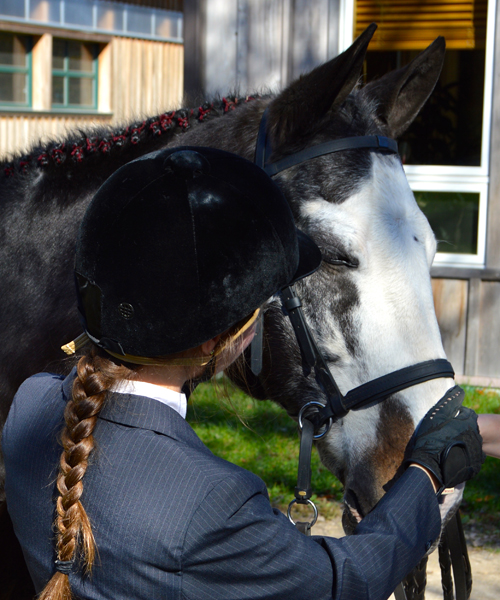Donate a Horse
Interested in Donating Your Horse to Pegasus?
We are always happy to receive inquiries from people who are interested in donating a horse to Pegasus. Our horses have a unique job – it is mentally and physically challenging to work in an equine assisted therapy program! So we need to make sure that any horse who becomes a part of our equine team is a good fit for the program, both for the sake of our riders’ safety and for the sake of the horse’s well-being.
If you are interested in donating a horse to Pegasus, we invite you to explore the tabs below to find out more about the type of horse we need, what life at Pegasus is like for our horses, and how we evaluate whether your horse is a good match for our program.
What Pegasus needs in a therapy horse
There are several key qualities that our therapy horses must have.
First, the horse must be sound at the walk, trot, and canter, with three rhythmic and balanced gaits. The quality of the horse’s movement is crucial for achieving the benefits that our program participants gain from therapeutic riding.
In addition, a good therapy horse must work easily in hand, be obedient to both voice and leg signals, and remain consistently calm and well-behaved on the ground. The horse must also be accepting of assistive devices and equipment, as well as tolerant of one or two people walking and trotting beside it.
Finally, we like to consider horses who are 18 years old or younger (some exceptions may be made), and under 17.1 hands tall.
What life is like for the Pegasus herd
We take the health and well-being of our equine friends very seriously. Our horses work a maximum of 12 half-hour lessons per week, with consideration taken for their age and level of physical fitness. The vast majority of this time is spent at the walk with some light trotting.
Our horses receive routine hoof care, vaccinations, regular deworming, dental care, and any other necessary veterinary care. We are also able to offer complementary therapies such as chiropractic and saddle fitting.
Daily care and feeding are provided by the barn staff and a dedicated group of trained volunteers. The horses eat all of their meals in their individual stalls. Because we are located in the city of Philadelphia, our turnout space is limited. However, our horses do go out into our pastures daily (weather permitting).
In addition, our Equine Director provides a customized exercise program for each of our horses, developed in collaboration from our farrier and vet. This can include lunging, arena exercises, trail rides, and ground work provided by our staff and by volunteers who have completed advanced training at Pegasus.
How we evaluate if Pegasus is the right place for your horse
Step 1
The first thing you need to do is complete the Prospective Horse Form. A Pegasus staff member will call you to learn more about your horse and how they might fit into our program. We will also go over the details of the prospective horse evaluation process.
Step 2
We ask that you provide a video of the horse being groomed, tacked, and ridden.
Step 3
If your horse seems like they may be a good fit for our program, a Pegasus staff member will visit the horse in person. The visit, which includes grooming, tacking, and riding, will be video-taped so that other Pegasus staff can observe.
Step 4
If your horse matches our current program needs and if space at our facility permits, we will bring your horse to Pegasus for a trial period of up to 90 days. During this trial, our staff will ride and evaluate the horse, assessing their temperament, soundness, and ability to handle the demands of our therapy program. Our primary importance is the safety and comfort of the horse and our riders, as well as our staff and volunteers.

Starting the Process
If you think that Pegasus might be a good home for your horse and you would like to start the prospective horse evaluation process, please complete the above form and email to Ryan, Ryan@pegasusphilly.org.
In your email, please be sure to include a good phone number you can be reached at, and the location of your horse.
